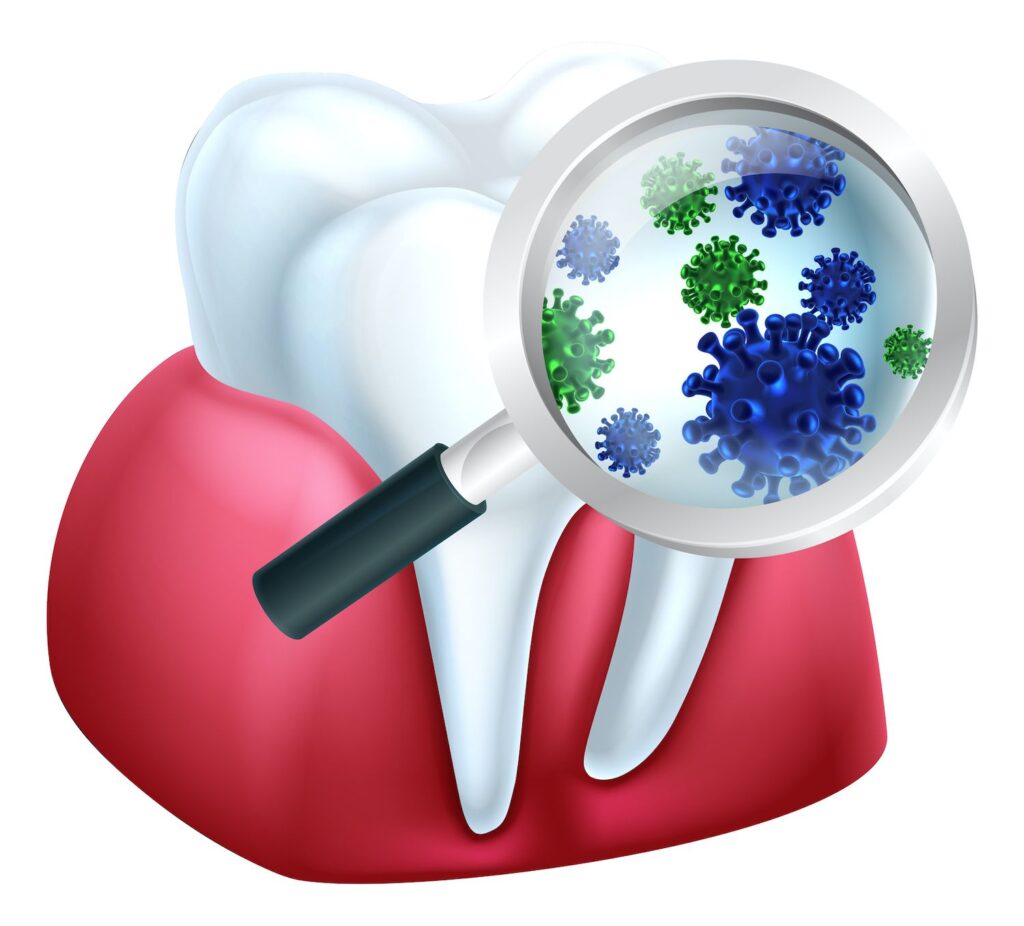Gum disease is a type of infection affecting the gum tissue that develops when oral bacteria reach the gums and irritate and inflame the area. It is common, affecting about half of all American adults, but it can wreak serious havoc if left untreated. You will need treatment from a dentist to get rid of gum disease because it will not go away on its own.
Anyone could contract gum disease. But some people may have a higher chance of forming it due to several underlying conditions. Knowing more about these dangers can help you prevent gum disease and preserve your oral health. Discover details about three factors that can heighten your risk of gum disease when you read on.

Aggressive Oral Bacteria
The human mouth naturally contains bacteria to aid digestion. Bacteria will create a film of plaque over the teeth throughout the day. We must remove it in a timely manner with oral hygiene. Otherwise, bacteria can spread with ease through the mouth, heightening your risk of oral infections like gum disease.
Some people may have particularly aggressive oral bacteria. At-home oral hygiene alone cannot prevent bacterial spread in this case. So to avoid gum disease, you should talk to your dentist to find ways to keep excess bacteria at bay.
The dentist may suggest using an antibacterial mouthwash. When you include this product in your oral hygiene routine, you can keep bacteria balanced and reduce the chance of them spreading and infecting your gums.
Underlying Medical Conditions
Your overall health can play a major role in the well-being of your smile, including your gums. If you have underlying medical conditions, you might face a greater risk of gum disease. For instance, certain chronic illnesses, like arthritis or heart disease, may lead to systemic inflammation. If this happens, your body can become more susceptible to infections like gum disease.
Other issues, like diabetes, can affect the oral environment as well to put you in a heightened danger of gum disease. Work with your doctor to manage health concerns so that you can better protect your smile. Similarly, you should prioritize good oral health so that you can more easily manage other health problems.
Poor Oral Behaviors
You need to practice regular oral hygiene and engage in healthy habits if you want to avoid gum disease and protect your smile. If you lapse in your oral hygiene routine, you may put yourself in danger of gum disease. This is because you will leave harmful plaque and other residues on your teeth, which will allow bacteria to travel and infect your gums.
Make sure you brush your teeth at least twice each day and floss daily. You also need to attend routine cleanings at your dentist’s office to maximize oral hygiene. Stop harmful oral habits as well, including smoking and biting your nails, to further reduce the danger of oral infections.
